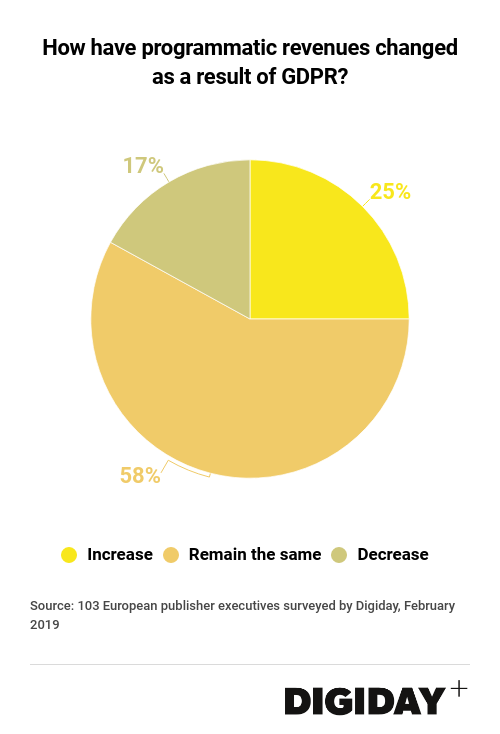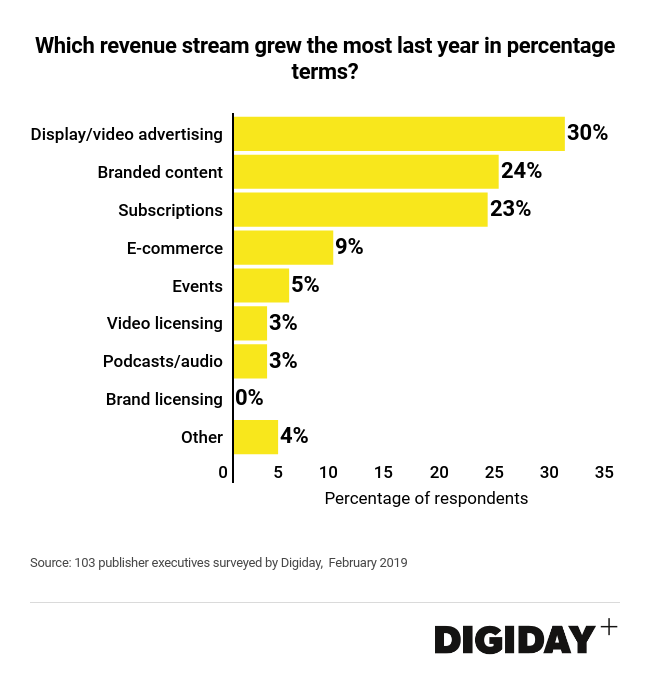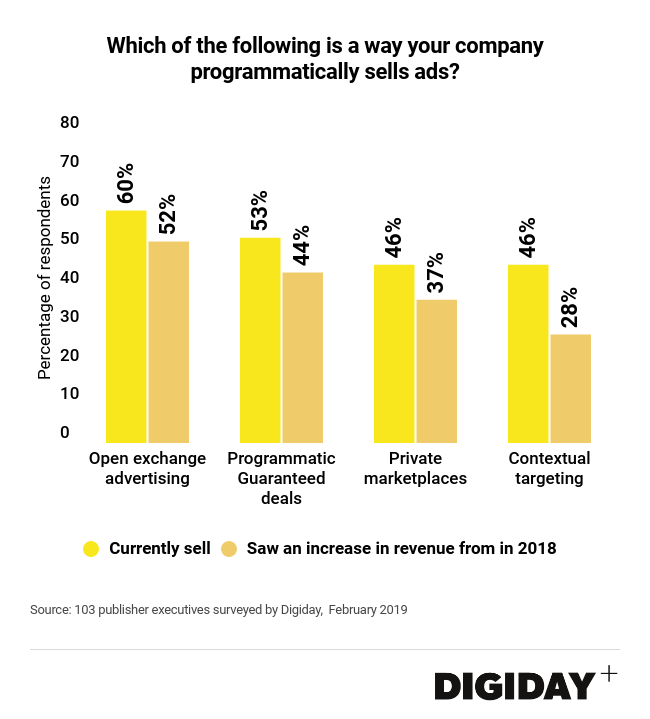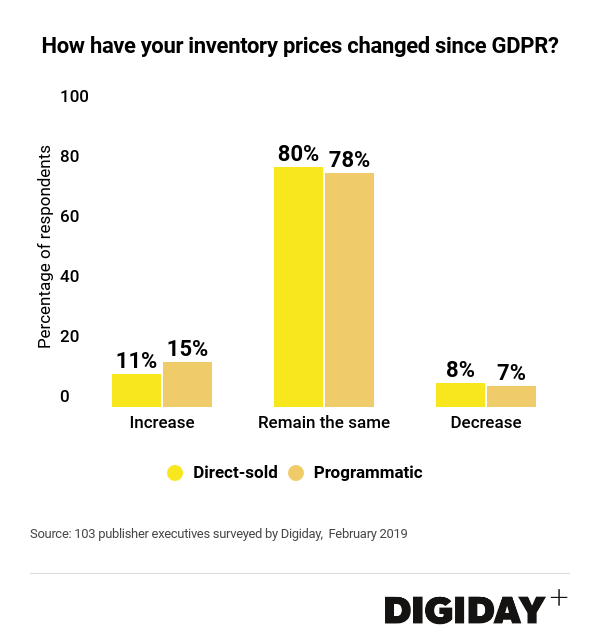Save 50% on a 3-month Digiday+ membership. Ends Dec 5.
Digiday Research: GDPR has not reduced programmatic ad revenues for European publishers

This research is based on unique data collected from our proprietary audience of publisher, agency, brand and tech insiders. It’s available to Digiday+ members. More from the series →
Concerns that the General Data Protection Regulation would negatively impact digital ad revenues haven’t materialized, publishers say.
Of 103 publishing executives polled by Digiday in February, 25 percent said they have seen programmatic revenues increase since GDPR was enacted last May, while 17 percent reported a decrease. Fifty-eight percent of respondents said their programmatic revenues have remained unchanged.
Meanwhile, programmatic inventory prices have remained relatively stable, with 78 percent of respondents reporting that their prices have remained consistent since May, while 15 percent said they increased. Eight percent of respondents said prices for their programmatic inventory decreased.
Thirty percent of the European publishers also said display and video advertising was their fastest growing revenue channel in 2018, ahead of other channels such as branded content and subscriptions.
Part of the digital advertising revenue growth publishers are seeing can be attributed to the success of some key programmatic sales strategies, including programmatic guaranteed deals and private marketplaces (PMPs).
Eighty-percent of European publishers conducting programmatic guaranteed deals said those deals provided higher revenues in 2018 than the year prior. Additionally, 70 percent of respondents selling inventory through PMPs saw increases.
One of the concerns publishers had prior to GDPR was that the regulation would limit their ability to collect audience data, thereby decreasing the value of their programmatic ads. But that hasn’t happened. A study from Quantcast last year found that 90 percent of internet users were opting into publishers’ GDPR consent requests.
Ad position: web_incontent_pos1


Now that the dust has settled over GDPR, many publishers are finding themselves in a stronger position with advertisers thanks to GDPR, according to Paul Gubbins, head of programmatic at News UK-owned video marketplace Unruly, who believes that GDPR forced publishers to exert greater control over their audience data. “Publishers cleaned up of a lot of the tags and data leakage, which allowed buyers to target premium audiences in longer tail environments leveraging third-party data, buyers are forced to go back to publishers as the source of the premium audiences” he said.
With less third-party data available, buyers are increasingly looking to programmatic-guaranteed deals and PMPs to access publishers’ first-party audience data instead.

Ad position: web_incontent_pos2
For U.K.-based Dennis, GDPR brought a lot of hype without much tangible change. “We didn’t see a specific impact to our display business as a result of GDPR” noted Pete Wootton, chief digital officer at Dennis.
Rather than GPDR, other outside factors have put greater pressure on Dennis’ digital ad business. “Some car advertisers have reduced their spend for now due to the uncertainty around Brexit,” said Wootton. “They’re still waiting to see what cars they’ll be able to sell in the U.K. and don’t want to spend needlessly.”

More in Media

What publishers are wishing for this holiday season: End AI scraping and determine AI-powered audience value
Publishers want a fair, structured, regulated AI environment and they also want to define what the next decade of audience metrics looks like.

Digiday+ Research Subscription Index 2025: Subscription strategies from Bloomberg, The New York Times, Vox and others
Digiday’s third annual Subscription Index examines and measures publishers’ subscription strategies to identify common approaches and key tactics among Bloomberg, The New York Times, Vox and others.

From lawsuits to lobbying: How publishers are fighting AI
We may be closing out 2025, but publishers aren’t retreating from the battle of AI search — some are escalating it, and they expect the fight to stretch deep into 2026.
Ad position: web_bfu